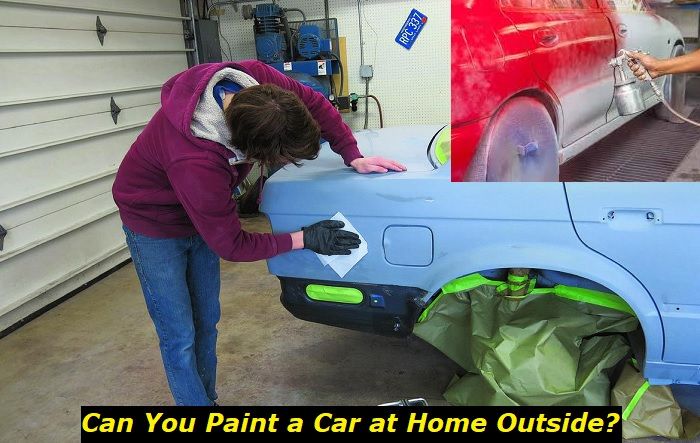Engine cooling system is extremely important for maintaining engine health. It's obvious that overheating is one of the most common reasons for engine death, so you should avoid high engine temperatures as much as you can.
In this article, I will tell you about cooling system problems in modern engines that I've written about in this blog. I will also give you links to research certain problems in more detail. You will be able to find the possible reasons and check what exactly is causing issues in your car.
.jpg)
Coolant leak problems
One of the most common issues with the cooling system in modern cars is leaks. Leaking antifreeze may cause a lot of problems including overheating. Also, leaking coolant may eventually get on one of the electrical parts under the hood of your car and cause serious damage.
If you need to add coolant regularly, this is a clear sign of a leak. Antifreeze may leak in various places including the coolant tank cap, pipes and connections, thermostat, radiator, and also water pump. When it's the water pump, it will seem like antifreeze is coming directly from the engine.
Turbochargers may cause serious leaks and also other equipment like the EGR valve, transmission cooling system, heat exchangers, interior heating equipment, etc.
If you see that the coolant tank is empty, there is one more thing to check. The head gasket may have been broken and now coolant is burning in the engine. You will see no leaks but coolant will disappear pretty quickly. This requires professional repair as soon as possible.
Coolant leaks highlights:
- Level of urgency:very high
- Commonreasons:cooling equipment failure, pipe connections, radiator damage
- DIY diagnostics:possible but complicated
- DIY repair:mostly impossible
- Price of repair:$350 - $1,500
- Time for repair:3 - 8 hours
- If ignored:overheating, equipment failure
Engine overheating problems
A lot of car owners wonder if their engines can survive overheating. Well, some are more durable than others and can withstand higher temperatures. But overall, the majority of modern engines are extremely afraid of any kind of overheating.
We don't always look at the temperature gauge so we can easily miss the point when the engine goes hot and the gauge needle points at "C". But once you notice this, stop the engine. Otherwise, it can die in a matter of minutes.
There are different secondary symptoms of the engine temperature being too high. For example, you can feel the heat of the engine inside the vehicle. Or it takes over 2 hours for the engine to cool down after you stop it. You will not see the check engine light or something. The self-diagnostics system may not work correctly at all times and only the temp gauge will be showing the problem.
Also, it's quite a bad symptom if the engine temperature spikes and then gets back to normal. It most likely shows issues with the thermostat.
There is another side to this problem - running cold. If the thermostat is stuck open, the engine will run cold at all times and its efficiency will be limited. This is a less dangerous problem but it's still worth fixing it as soon as possible to avoid engine damage.
Engine overheating highlights:
- Level of urgency:very high
- Commonreasons:low coolant, thermostat problems, coolant blockage, radiator fan problem
- DIY diagnostics:possible but complicated
- DIY repair:impossible
- Price of repair:$300 - $650
- Time for repair:3 - 6 hours
- If ignored:engine failure, low performance, cooling equipment damage
Coolant level problems
First of all, you should understand that if the coolant level changes in your vehicle, it's a bad sign. Just topping up antifreeze without understanding the reason for the low level is not a good option.
If there is no coolant in the tank at all, it may mean that the head gasket is broken or there is a heavy leak somewhere in the system. Checking the level in the radiator makes no sense because the system is interconnected, so the radiator will have the same level as the tank.
If you keep driving with a low coolant level, there is a high chance you are going to damage the engine. It's better to top up antifreeze or water whenever you see this problem. Flushing the system will only be needed when there are issues with the appearance or texture of the coolant.
There is another problem - too high level of coolant in the tank when cold or hot. If the level is high, it may be a sign of engine head gasket damage. Some other liquid may be mixed with coolant. Or it just expands when it's hot. But the level shouldn't change significantly whether the antifreeze is hot or cold.
Coolant level problems highlights:
- Level of urgency:high
- Commonreasons:cooling system problems, leaks, coolant expands, circulation issues
- DIY diagnostics:quite complicated
- DIY repair:impossible
- Price of repair:$300 - $850
- Time for repair:3 - 9 hours
- If ignored:engine overheating and failure, cooling equipment problems
Cooling system problems
It's not uncommon for a cooling system to develop pretty weird problems. For instance, the coolant may start gurgling suddenly. Or there may be anomalies with how coolant behaves in the tank with no engine overheating.
A lot of problems come from common-sense reasons. For example, a lot of car owners just don't know that coolant can usually last a certain amount of time and then it expires.
Also, many problems come from a misunderstanding of how to use the car. You should check the operating temperature of your engine. Without knowing this, you may always think that there are problems with the cooling system.
Understanding the proper cooldown period for your engine is also important. This may cause issues and questions when everything is actually OK with your car.
By the way, many car owners think that cooling problems may happen because they don't do something special after topping up or changing coolant. This is not true. The only thing you should do is verify the level is good.
But if you see contaminated coolant or jelly-like texture of antifreeze, it means that the coolant is mixed with oil and it's spoilt. Repair is needed immediately.
Cooling system problems highlights:
- Level of urgency:high
- Commonreasons:badantifreeze, broken cooling equipment, leaks
- DIY diagnostics:very complicated
- DIY repair:impossible
- Price of repair:$250 - $650
- Time for repair:3 - 8 hours
- Ifignored:engine overheating and failure
Cooling equipment problems
Sometimes, cooling problems originate from unexpected equipment. For example, very often, EGR coolers start leaking antifreeze directly into the combustion chambers - this leads to serious consequences.
But more often, this is just some radiator failure like damaged fins or leaks. Radiators may just show you some problems like lack of pressure, but they may not be in charge as any other part in the system may be broken and affect the pressure. Of course, one of the leaders in terms of failing is the water pump. If it's not replaced when needed, the pump will start leaking and will fail to circulate coolant in your engine.
Unfortunately, all those cheap temporary fixes don't work and you will have to get your car diagnosed and repaired professionally.
Cooling equipment problems highlights:
- Level of urgency:medium
- Commonreasons:low-quality antifreeze, age, mileage, damage
- DIY diagnostics:very complicated
- DIY repair:impossible
- Price of repair:$350 - $850
- Time for repair:3 - 10 hours
- If ignored:engine overheating, bad coolant leaks, equipment damage
Coolant circulation problems
It's not that common for the coolant system to develop some kind of blockage. Very often, its symptoms will show you some other problems and you will need to diagnose the engine properly before making any conclusions.
Blockage may sometimes be formed in the radiator if the coolant is super-dirty and hasn't been changed for decades. But more often it's just some kind of air lock or a problem with the thermostat or other cooling equipment.
Coolant circulation problems highlights:
- Level of urgency:medium
- Commonreasons:bad coolant, air lock, thermostat issues
- DIY diagnostics:complicated
- DIY repair:impossible
- Price of repair:$250 - $650
- Time for repair:2 - 7 hours
- If ignored:fatal overheating and engine damage
About the authors
The CarAraC research team is composed of seasoned auto mechanics and automotive industry professionals, including individuals with advanced degrees and certifications in their field. Our team members boast prestigious credentials, reflecting their extensive knowledge and skills. These qualifications include: IMI: Institute of the Motor Industry, ASE-Certified Master Automobile Technicians; Coventry University, Graduate of MA in Automotive Journalism; Politecnico di Torino, Italy, MS Automotive Engineering; Ss. Cyril and Methodius University in Skopje, Mechanical University in Skopje; TOC Automotive College; DHA Suffa University, Department of Mechanical Engineering






Add comment